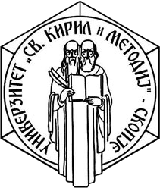Software Engineering TEMPUS (4+1)
Software Engineering TEMPUS (4+1)
1. General information
The MSc curriculum in software engineering is committed to excellence in European-wide software education and training of engineers to deliver high quality and trustworthy software systems that meet the local industrial needs.
General competencies
- Ability to work in an interdisciplinary team
- Capacity for critical analysis and synthesis
- Capacity for applying knowledge in practice
- Capacity for generating new ideas (creativity)
- Capacity to learn
- Decision-making
- Knowledge of a second language
- Research skills
Specific learning outcomes
- Show mastery and critical thinking of the software engineering (SE) knowledge and skills and professional issues necessary to begin practice/research as a software engineer.
- Work as individual or as part of a team to develop and deliver high quality software artefacts, being able to analyze its level of quality.
- Identify, analyse, and reconcile conflicting project objectives, finding acceptable compromises within limitations of cost, time, knowledge, existing systems and organizations.
- Analyze, design and document appropriate solutions in more than one application domains using SE approaches that integrate ethical, social, legal and economic concerns.
- Demonstrate an understanding of and critically analyze and apply current theories, models and techniques that provide a basis for problem identification and analysis, software design, development, implementation, verification and documentation.
- Demonstrate an appreciation and understanding for the importance of negotiation, effective work habits, leadership and good communication with stakeholders in a typical, industry-strength software environment.
- Learn new theories, models, techniques and technologies as they emerge and appreciate the necessity of such continuing professional development.
- Offered by: Sts. Cyril and Methodius University - Skopje, Faculty of Computer Science and Engineering – FCSE in collaboration with the University of Novi Sad, Faculty of Natural Sciences and Mathematics, Department of Mathematics and Computer Science
- Study programme: Joint MSc curricula in Software Engineering / Tempus JEP 18035
- Scientific-research field: Computer Science
- Category: Computing
- Sub-category: Software and its Engineering, Theory of Computation, Information Systems
- The master studies cycle consists of 60 ECTS.
- Study duration: 2 semesters
- One academic year is divided into two semesters with 30 weeks each (1 semester = 15 weeks)
- The first semester is comprised of courses only, while the second semester there is devoted to the final project, i.e. master thesis.
- Enrollment requisites: fully completed undergraduate study cycle with a minimum of 240 ECTS with a degree in the fields of computer science and/or computer engineering.
- First semester: 5 elective courses divided into two groups: general SE competence and specific SE competence. Student can select at most two from the general SE courses, and at leas from the specific SE courses
- Second semester: Final master thesis project that equals 30 ECTS.
- 1 ECTS = 30 hours of work load.
- Contact hours per week is 4.
Degree: Master of computer science in the area of software engineering.



